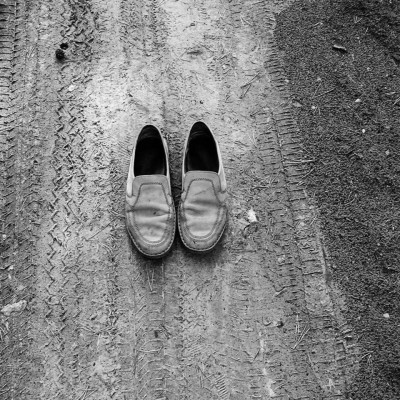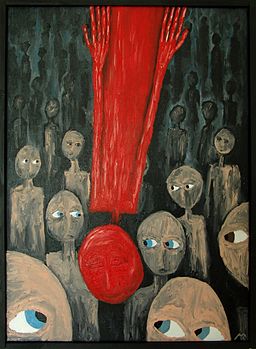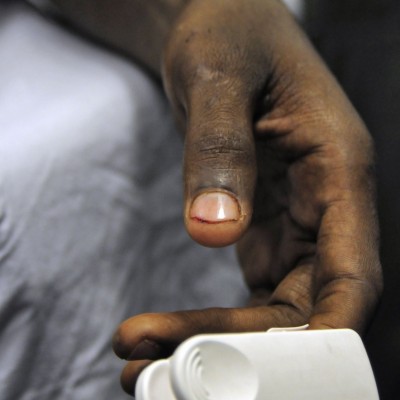by IfeOluwa Nihinlola
Part VIII of VIII: This Muddling Will End
Pain is where all of the world’s theology goes to die a natural death. You don’t need to experience extreme pain to understand its debilitating effects on the human spirit. You can simply read accounts like CS Lewis’s A Grief Observed, or Sylvia Plath’s Bell Jar, and assume that the inner workings of pain have been made plain. But nothing prepares you for the inelegance of pain and suffering.
Seven months after that night that I entered the hospital, at a wedding ceremony in Ibadan, across the table from me, one of my best friends and I talked in spurts amidst the party’s loud, dissonant sounds. After a long pause spent staring at my face, and my wondering what she was looking at or wanted to say, she stood, came round to my side of the table, and hugged me from behind. I looked at her face, puzzled at what could have inspired someone I like to refer to as my most practical friend to do that. I just realized that I’m seeing you for the first time since you fell ill, she said. She was one of the first to know. One of the first to notice my absence from the Internet and another friend’s wedding and think that was a little insidious and not stop trying to contact me till someone picked up my phone to speak. In that hug were many unspoken thoughts, and I heard all of them. Often, what I want is something to speak to my head, and offer an explanation of the way things are—perhaps this is why I like apologetics. But sometimes all a soul needs is the emotional equivalent of a hug, an assurance that speaks to the spirit that all is well.
My favourite aunt often came to my bedside during the hospital days. Any time I went into a mini crisis, after calling the nurses to attend to me, she would bend in the chair beside me, face contorted in agony, lips moving in silent prayer. And for as long as the crisis continued, she would hold that position. She was looking for that assurance too, that silent conviction that I know is possible for the spirit to get when prayer does what many promise that it does. At the best of moments, prayer isn’t just the mouth mumbling and saying nothing into the air. I know that, not just because I’ve felt it—of course, feelings can be suspect—but also because I’ve witnessed places where prayer seemed to be working even as we uttered it.
Looking up in faith is a tough call even when faced with despair. The human default is vulnerability, if babies and their dependence on their mothers are taken as an unspoiled model of human nature. But somewhere in our development we become convinced that the thing to do in a crisis is to fight, to figure out a way. And rightly so, because that is how we become adults. But faith calls for us to raise our heads and depend on something or someone higher, at those moments when our mind tells us the logical thing is to figure things out, to dig in the trenches and strategise a way out. Of course the folly of the mind is that it doesn’t realise it has no way out of the present problem of it’s own accord. A soul in pain cannot reason its way out of said pain immediately, it needs outside help, or time, or a combination of the two.
At the worst of it, the mind starts to ask questions of the divine arrangement that has claims of being capable at helping one out of a crisis, but wasn’t pro-active enough to prevent it. I knew my mind was going to go there, inevitably, if I thought too much about God in all that, which is one of the reasons I chose to think very little of anything during the worst days of the crisis. I chose to focus my mind on the banal parts of the illness, knowing that to contemplate the divine, in that condition, is to risk death. W, a friend miles away at the other end of the world, was intent on my looking up in those days. She was the one who got me to download a devotional app, and use it daily. That I did. But there’s a mail with questions she sent me that I still haven’t replied. I know all of the theological explanations to many of the questions I would ask, yet know none of them was capable of drawing me out of despair if knee deep in it, or offer that hug that the soul needs that forms the basis of hope, a hope that transcends explanations, words, and rationalisations.
I have friends who still look into my eyes and ask, how are you, hoping for a deeper answer. Family and acquaintances, who look at me with pity at what is lost— time, potential— their faces a map of what must be sadness at the thought of promise petering out into the wilderness of young adulthood without signs of fulfillment. Mother now sends a daily text message containing a bible passage and a prayer. Everyone concerned is looking for a “fine” to tie up the “how are you,” a point we can all lift our hands in praise for a pain that has come to its end. But there are no neat answers for anyone, no resolution to this unfolding process— not yet.
For me, there’s still prayer, reading the bible, and feelings best captured by Yiyun Li: “To write about a struggle amidst the struggling: one must hope that this muddling will end someday.” This type of healing isn’t like make-up. There are no before and after photos, only a desire that each day improves over the next, even if it’s marginally. This is not an exercise in looking pretty, or making people comfortable around you. It is messy and painful. And all that is left is hope that the scars, wherever they may be, would heal graciously.
Penultimate part- VII of VIII: Grand Schemes
Image credit: Ben Earwicker Garrison Photography, Boise, ID
About the Author:
 There are various ways of processing this thing called life, and music is chief among them. But I’m no musician, so I’ve settled for the poetry of words and their ability to surprise me, once written. Now that this is done, I return to being a student poring over engineering analysis and design, writing the occasional essay and short story, and rambling at ifenihinlola.wordpress.com.
There are various ways of processing this thing called life, and music is chief among them. But I’m no musician, so I’ve settled for the poetry of words and their ability to surprise me, once written. Now that this is done, I return to being a student poring over engineering analysis and design, writing the occasional essay and short story, and rambling at ifenihinlola.wordpress.com.




There are no comments